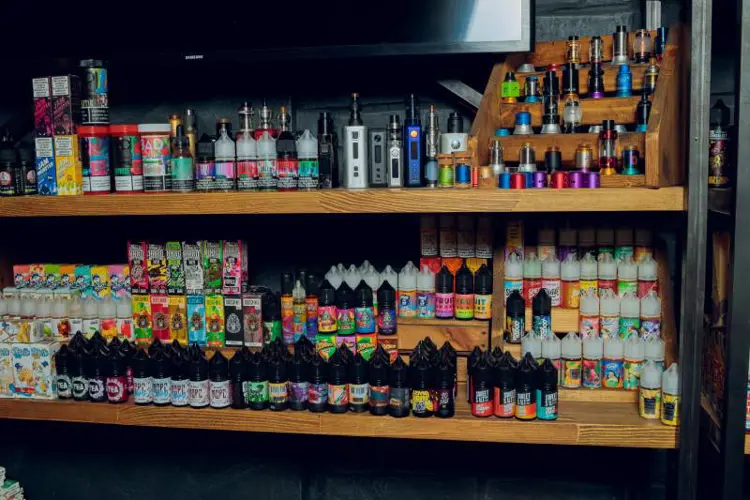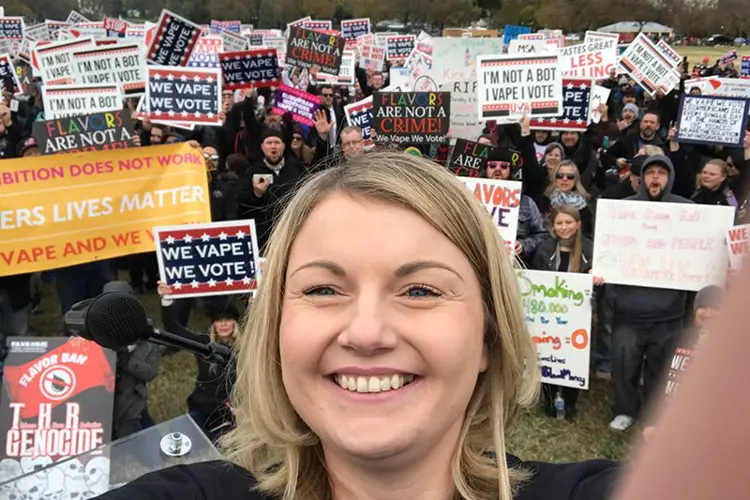After leaving his job as FDA commissioner, Scott Gottlieb has accepted a part time position to help pay the bills. The ex-FDA boss has been elected to the board of directors at Pfizer Inc., manufacturer of the quit-smoking drug Chantix and the third largest pharmaceutical company in the world.
The move surprised almost no one. According to STAT News, during the last 38 years every FDA commissioner but one (David Kessler) served on a pharma board after leaving public service. And why not? Who would be more attractive to a company that sold more than $53 billion worth of drugs in 2018, as Pfizer did, than someone who until a few months ago created FDA policy and intimately knows the regulatory strategies of the Trump administration? Gottlieb will also serve on the board’s regulatory and compliance and science and technology committees.
For conspiracy fans, Gottlieb is joining the pharma company that makes the world’s best selling non-nicotine quit-smoking medication. Pfizer markets varenicline in the U.S. as Chantix, and elsewhere in the world as Champix. Vapor products are in direct competition for smoking customers with Chantix, and they’re cheaper, more attractive to smokers, and not known for creating suicidal thoughts and nightmares.
Chantix is usually covered by employer-provided health insurance, which makes it largely useless for many of the low-income, uninsured people who smoke, since the cost without insurance is about $500 a month. Luckily for Pfizer, there are still enough insured smokers who want to quit to drive about $1 billion in annual Chantix sales.
Gottlieb’s July 2017 announcement of a “comprehensive plan” to remake the tobacco and nicotine landscape got attention mostly for the plan to reduce nicotine in cigarettes below addictive levels, and for the postponement of the PMTA deadline for vapor products (which was recently reversed by a federal judge in Maryland). But he also called for help from pharmaceutical manufacturers and vowed to “work to have medicinal nicotine and other therapeutic products play a greater role in helping more smokers try to quit with help.”
Then came the JUUL moral panic. Tobacco control and anti-drug groups worked together to drive the popular perception that huge numbers of high schoolers were vaping and becoming nicotine “addicts.” Never one to miss an opportunity for publicity, Gottlieb made the panic his own, called it an epidemic, and beat the addiction drum incessantly for his remaining months at the FDA.
Since then, Gottlieb has spoken several times about vaping products possibly being approved through the medicinal route, as over-the-counter (OTC) drugs. (He has even pushed the idea of novel drug products to treat “adolescent nicotine addicts.”) Pharmaceutical approval wouldn't likely be a process accessible to small independent vaping manufacturers (or even larger ones, except possibly JUUL and NJOY). According to vape industry regulatory attorney Azim Chowdhury, drug approval would most likely accomplished by drug companies only.
“If FDA does establish an OTC pathway for ENDS, pharmaceutical companies with prior experience navigating the complex and costly FDA drug approval process for NRTs, and whose products are competing with recreational ENDS on the nicotine market, would certainly be better positioned to navigate that regulatory scheme compared to the thousands of small businesses that make up the vaping industry today,” Chowdhury wrote last year.
That would include a company like Pfizer, which is built for the drug approval process. Pfizer has the regulatory chops, the money, and the patience to wait years for approval of a mediocre e-cigarette it could sell in pharmacies, but also in convenience, grocery and big box stores. Once the FDA completes Gottlieb’s work and bans flavors in consumer vaping products, a pharma vape would have less competition (no vape shops and no flavors in c-stores), and could be a useful complement to Chantix.
It’s worth asking when Gottlieb began his discussions with Pfizer. Did he know he would be working for the drug company when he wrote an op-ed published this week in the Wall Street Journal, urging the FDA to force JUUL into the OTC drug pathway (where they would have to compete with pharma giants like Pfizer)? Of course he did.
But an obvious conflict like that is small potatoes to a master of the universe like Gottlieb. The bottom line always trumps ethics at corporations like Pfizer. They leave their moral compasses at home when they go to work in the morning, and watch their stock options grow fat in the afternoon. Corruption is just a word that poor people use.
Pfizer board members last year made $142,500 plus stocks worth around $159,000, according to STAT News. The board met seven times in 2018, and there were also an unknown number of committee meetings. Gottlieb won’t get rich sitting on the Pfizer board—by his standards—but it's the kind of side gig that will help cement his position as a power broker. His only business is selling his influence and connections, and business is good.
Since leaving the FDA, Gottlieb has returned to his old jobs as resident fellow at the American Enterprise Institute, and as a special partner at venture capital firm New Enterprise Associates. He's also joined CNBC as a contributor, which allows him to combine his two great loves: making money and hearing himself talk.
The Freemax REXA PRO and REXA SMART are highly advanced pod vapes, offering seemingly endless features, beautiful touchscreens, and new DUOMAX pods.
The OXVA XLIM Pro 2 DNA is powered by a custom-made Evolv DNA chipset, offering a Replay function and dry hit protection. Read our review to find out more.
The SKE Bar is a 2 mL replaceable pod vape with a 500 mAh battery, a 1.2-ohm mesh coil, and 35 flavors to choose from in 2% nicotine.
Because of declining cigarette sales, state governments in the U.S. and countries around the world are looking to vapor products as a new source of tax revenue.
The legal age to buy e-cigarettes and other vaping products varies around the world. The United States recently changed the legal minimum sales age to 21.
A list of vaping product flavor bans and online sales bans in the United States, and sales and possession bans in other countries.



















